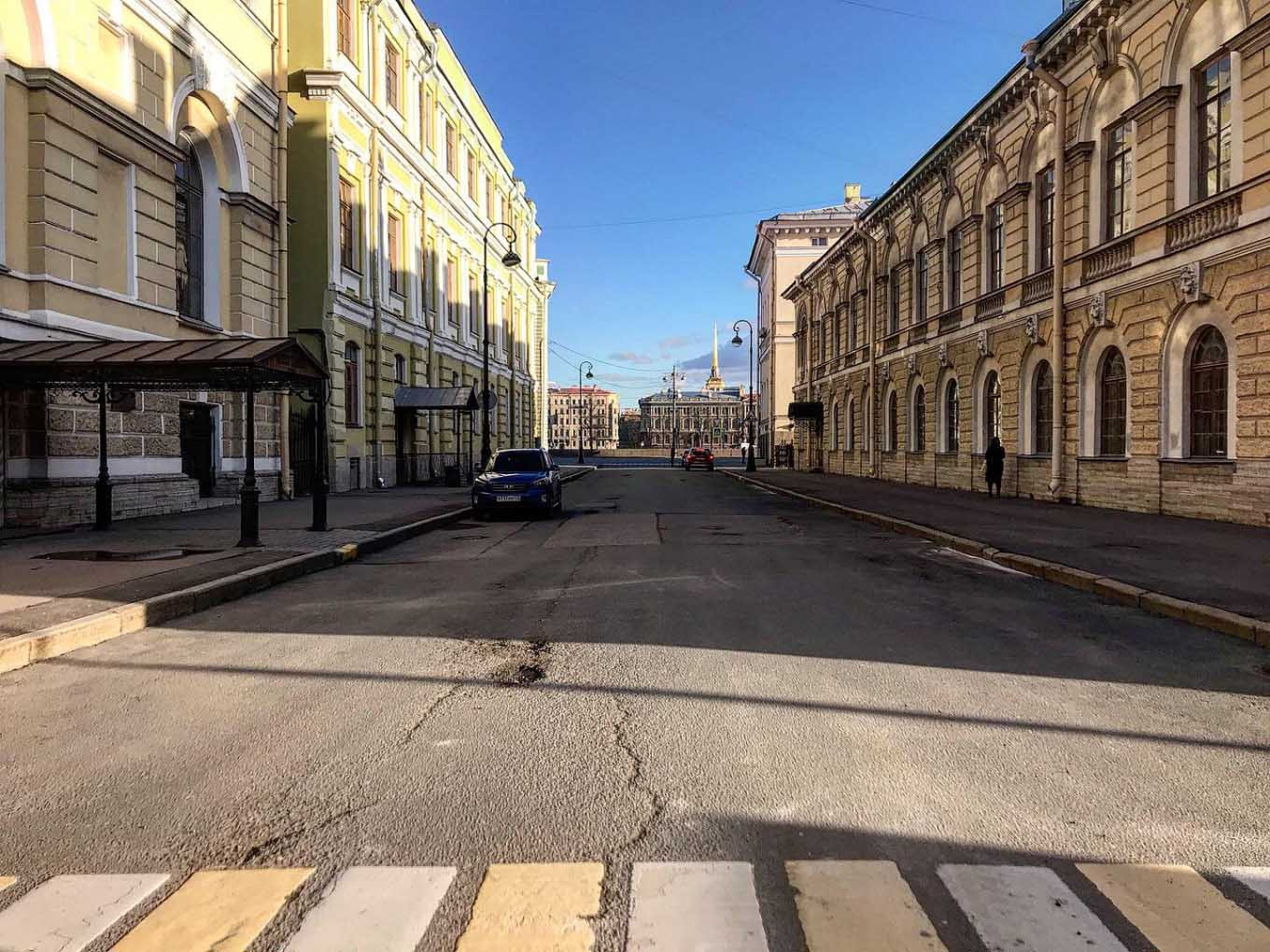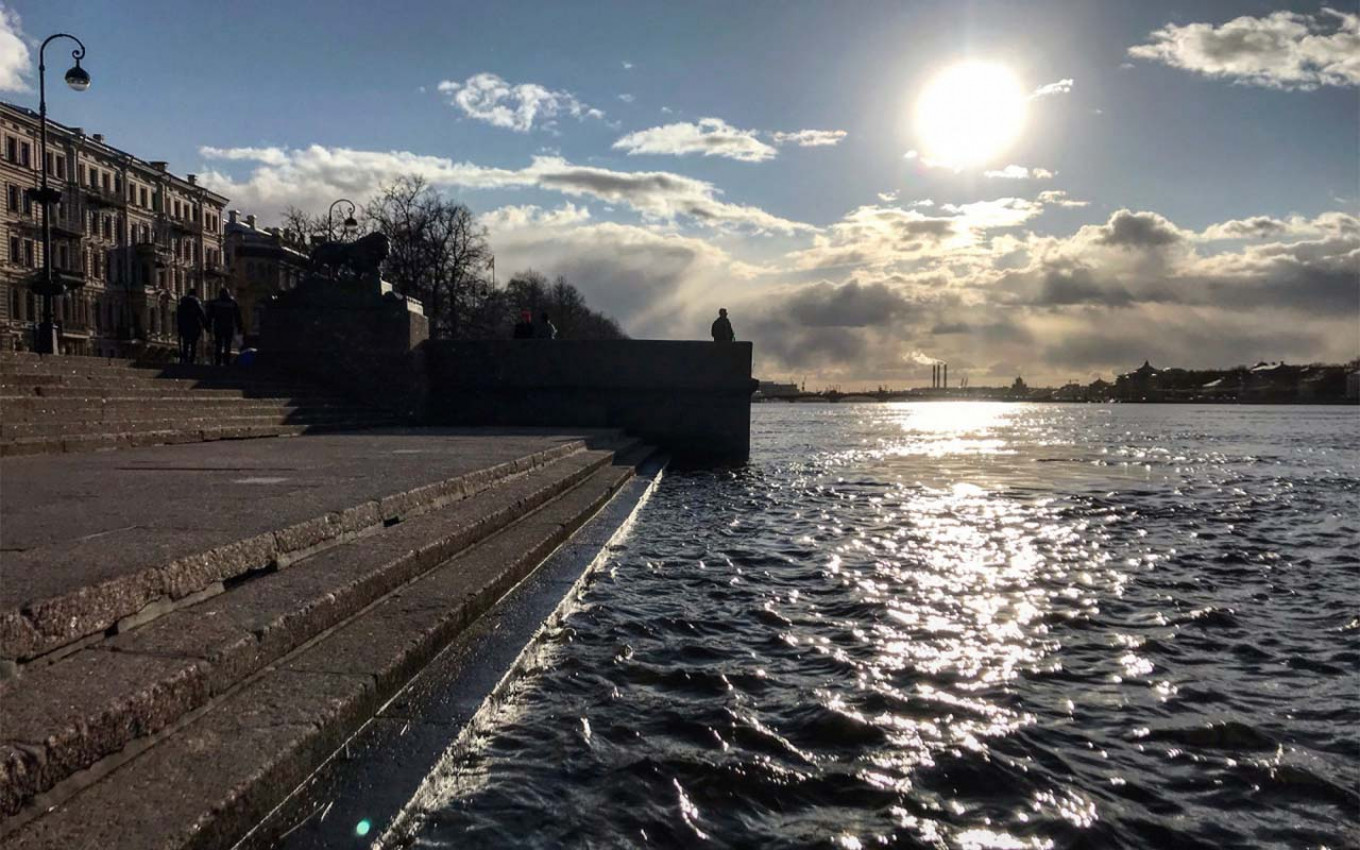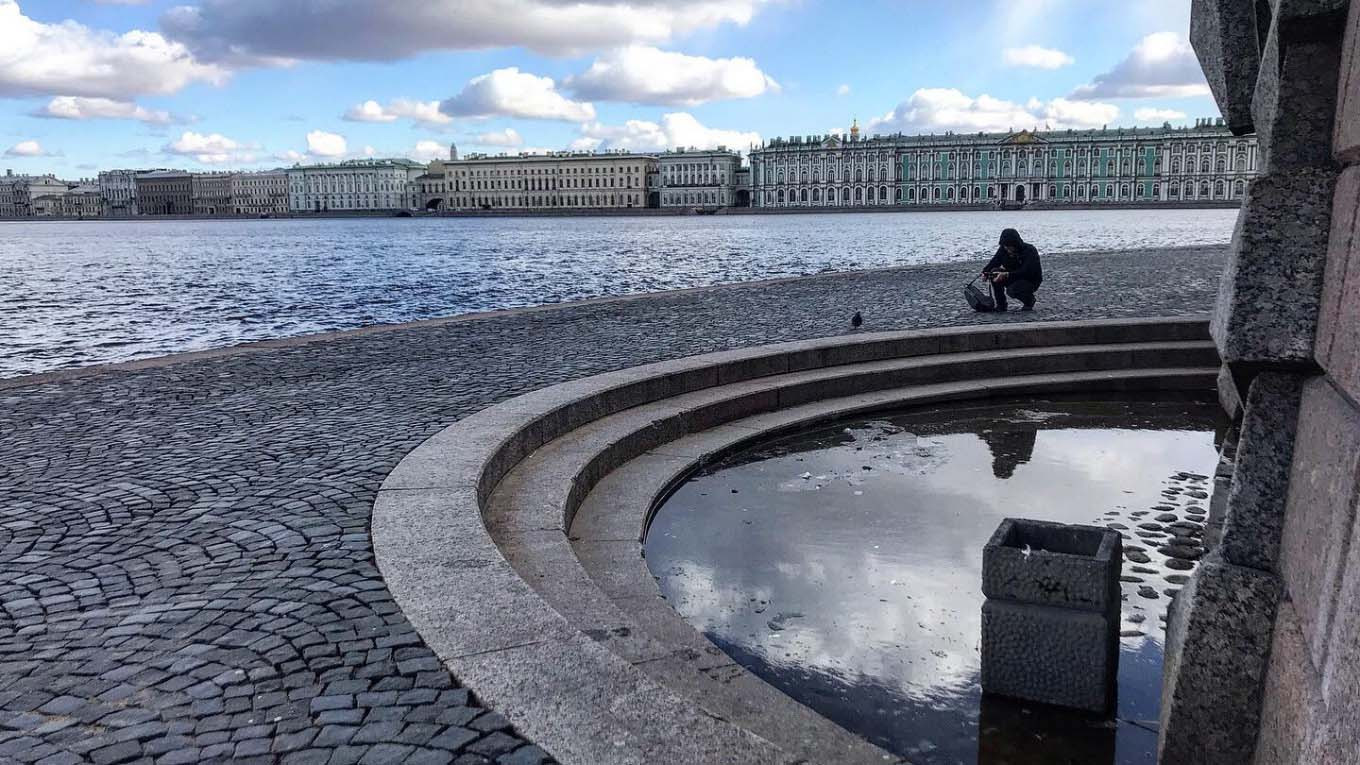St. Petersburg governor Alexander Beglov has asked Russians to stay out of the city. “Movie theaters, theaters and other venues are closed. There is nothing to do here,” he said on March 21 during his visit to the coronavirus information center in St. Petersburg.
Despite his warnings and quarantine measures, street life last week hadn’t stopped in the cultural capital of Russia. Actors dressed like Peter I and Catherine II were still hunting down tourists for photographs on the Spit of Vasilievsky island, street musicians sang on Palace Square and Nevsky Prospekt was filled with people.
But Alexander Beglov ordered the city's restaurants, cafes, bars and non-essential shops to close from March 28 until at least April 5, the period that President Vladimir Putin declared a paid holiday. People will also be barred from visiting parks or religious buildings during this time. The city has banned gatherings of more than 50 people as well as all sporting and cultural events.
The Hermitage, State Russian Museum, Peterhof and Tsarskoye Selo have been closed temporarily by order of the country’s Culture Ministry.
There are no tourist buses and no foreign visitors, as Russia banned foreign nationals from entering the country until May 1. The e-visa regime, established in St. Petersburg and the Leningrad region in October 2019 is currently suspended. Ordinary tourist visas will not be issued until after May 1.
The 2020 UEFA European Football Championship was postponed, which means that four games of the tournament will take place on the Saint Petersburg Stadium only in 2021. Earlier this month organizers of the St. Petersburg International Economic Forum announced that the annual business conference will be cancelled. The heads of state of more than 20 countries have attended SPIEF in the past, which is usually held at the ExpoForum center.
“We had to move or cancel more than 40 exhibitions, congresses and events already,” Sergei Voronkov, general director of the ExpoForum International, told The Moscow Times. “Our industry has become the most vulnerable, since holding exhibitions and congresses is impacted by all the recent limitations in tourism: suspension of flights and ban on public gatherings,” he said.

Blow to hospitality industry
According to the data from Rusland SP Hospitality, hotel occupancy decreased from 60% to 18% in March, and St. Petersburg hotels are losing 48.1 million rubles daily. Some have had to close their doors for the time being. Many hotel managers contacted did not want to comment or disclose their numbers, saying only that the way to survive is to adapt to the current crisis. They are asking clients to move bookings, keeping their payment as a deposit and accepting cancelations with no charge.
“We check the temperatures of our staff daily,” Natalia Yermashova, Director of Public Relations at the five-star Astoria hotel, told The Moscow Times. “Our doctor is always on duty. Our sanitary medic is very strict and gives talks and demonstrations for the staff on hygiene during the COVID-19 pandemic. Every part of the hotel is regularly disinfected, there is sanitizer in all guest areas, and uniforms are constantly cleaned,” she said.
Meanwhile, countryside hotels and sanatoriums are in high demand. “There is a mass exodus out of the city now,” Natalia Belyakova, a partner at the Luxury Travel Russia Association . “But what can city hotels do right now? They are thinking of how to be useful to locals. Maybe they can deliver a meal from their restaurant or offer long-term accommodations for St. Petersburg residents, who are bored working at home. High sanitary standards are the hotels’ strong selling point."
"Of course," she added, "these measures are not to make a profit, but to survive."

Cruise crash
The St. Petersburg Committee for Tourism Development reported a record amount of tourists to the city in 2019 — 10.4 million people, of which 4.9 million were foreigners. Located on the Baltic Sea, last year St. Petersburg welcomed 680,000 cruise ship passengers, who benefited from the 72-hour no-visa regime. According to the Passenger Port website, the first cruise ship Sky Princess was scheduled for May 1, but Princess Cruises has already announced that it will voluntarily pause global operations till May 10, and bookings for Russia and Scandinavia cruises are not available on their website.
Kirill Belov, a representative of TJ Travel Company, a provider of services for cruise passengers, told The Moscow Times that they are extremely worried about the COVID-19 situation. “For May 1 to Sept. 31, 2020 bookings are down by 54 percent compared to last year.” He noted that the company works with tourists aged 60 and older, who are at particular risk. They have almost all postponed their trips until 2021.
“In an optimistic scenario, the season will start in June-July, if tourists finally decide to come. This would probably be 50-70 percent the number of tourists in a normal year. In the worst-case scenario, coronavirus will last till the end of the summer, and then companies can only hope for an improvement next year. But of course, we hope that the strict measures implemented by European Union, where all Baltic cruises start, will stop the pandemic and improve the situation,” Belov said.
Tour guides without tourists
Meanwhile, St. Petersburg tours guides are also unsure about their future. Many of them shared their fears and thoughts in a group on the Russian social network Vkontakte, which has nearly 16,000 members.
“I’ve been in the tourist industry for 42 years,” Nadezhda Popova wrote. “Over the years there have been many catastophes, but in the end, the situation always went back to normal. The last one took place in 2014 – the crisis in Ukraine and Ebola. About 70 percent of the groups were cancelled, but then we got some bookings. Of course, we made less money, but we didn’t starve to death. Everyone needs to have savings for a rainy day and not expect help from the state.”
Other guides are trying to use this pause productively: doing online tours on their Instagram accounts, giving private language lessons, improving their knowledge base through books and films. Some are working with individual Russian tourists, who are not afraid of coronavirus or just don’t take it seriously.
“People who have just arrived in St. Petersburg can't visit museums since they’re closed,” Natalia Dubovik, an private guide, told The Moscow Times. “So city walking tours are the only option at the moment, and that's my favorite thing to do. At the same time, we are giving our planet a break. We might slow down global warming by cutting out travel for a while,” she said.
But not all the city’s guides think it's a good idea to take local tourist groups around the city. The Saint Petersburg Professional Tourist Guides Association sent a letter to the governor asking to stop all excursions temporarily and fine their organizers. “We share the view of doctors, and so we support the approach in China over the approach in Italy,” association member Sergey Kalinin told The Moscow Times. “Of course, we are the first who to be harmed by this decision, but we believe that a strict quarantine will reduce the disease rate and length of the crisis,” Kalinin said. He insists that all contacts should be minimized and added, “It’s not that we begrudge people work. It’s that we all have mothers and grandmothers who are the most likely to take these tours. We know that it’s hard to keep these culture buffs at home, so organizers should be more responsible.”
This Saturday, the city's restaurants, cafes, bars were closed and the Venice of the North is almost as quiet as its Italian prototype.
But meanwhile, St. Petersburg residents are recalling the exhortation of poet Joseph Brodsky, written when he lived in the city: "Don't leave the room!"
A Message from The Moscow Times:
Dear readers,
We are facing unprecedented challenges. Russia's Prosecutor General's Office has designated The Moscow Times as an "undesirable" organization, criminalizing our work and putting our staff at risk of prosecution. This follows our earlier unjust labeling as a "foreign agent."
These actions are direct attempts to silence independent journalism in Russia. The authorities claim our work "discredits the decisions of the Russian leadership." We see things differently: we strive to provide accurate, unbiased reporting on Russia.
We, the journalists of The Moscow Times, refuse to be silenced. But to continue our work, we need your help.
Your support, no matter how small, makes a world of difference. If you can, please support us monthly starting from just $2. It's quick to set up, and every contribution makes a significant impact.
By supporting The Moscow Times, you're defending open, independent journalism in the face of repression. Thank you for standing with us.
Remind me later.






